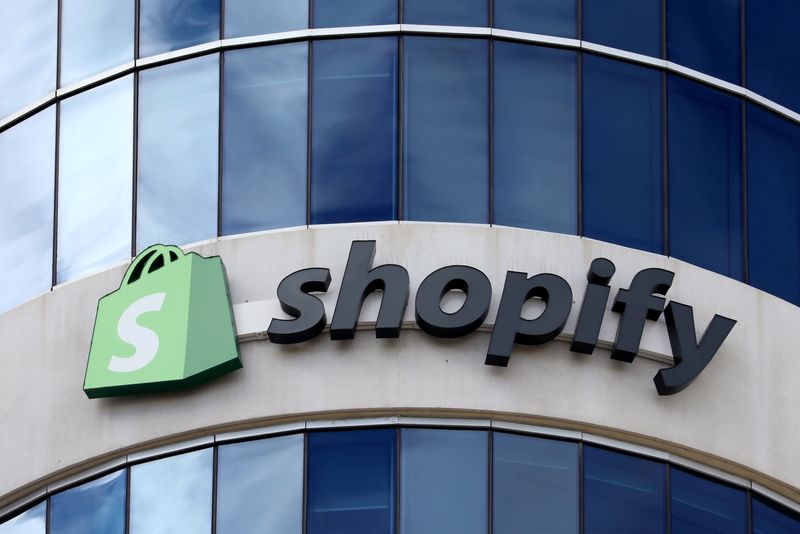Shopify warns of more pain ahead after surprise loss
2022.07.27 16:46

FILE PHOTO: The logo of Shopify is seen outside its headquarters in Ottawa, Ontario, Canada, September 28, 2018. REUTERS/Chris Wattie/File Photo
(Reuters) -Canada’s Shopify (NYSE:SHOP) Inc on Wednesday warned of an adjusted operating loss for the second half of the year, blaming higher costs and expenses related to the integration of ecommerce fulfillment company Deliverr.
The company, which provides tools and services to help businesses build their online store, also reported a surprise loss for the second quarter, sending its U.S.-listed shares down about 8% at $29.12 in premarket trading.
Shopify was among the big winners during the pandemic when many brick-and-mortar retailers shackled by pandemic-related lockdowns flocked to its infrastructure to set up stores online to sell their products.
The company also invested heavily to build out a fulfillment network, including a $2 billion purchase of Deliverr, to help merchants deliver goods on time.
That came just as inflation raced to decades high and online shopping growth slowed down with more shoppers returning to brick-and-mortar stores for essential purchases.
“We now expect 2022 will end up being different, more of a transition year, in which ecommerce has largely reset to the pre-COVID trend line and is now pressured by persistent high inflation,” the company said.
Shopify on Tuesday also said it would cut 10% of its workforce to counter the challenging environment.
The company forecast adjusted operating loss for the back of the year but expects it to be much smaller in the holiday quarter from the third.
For the second quarter ended June 30, the company posted a net loss of $1.20 billion, or 95 cents per share, compared with a profit of $879.1 million, or 69 cents per share, a year earlier.
On an adjusted basis, Shopify reported a loss of 3 cents per share, while analysts’ on average had expected a profit of 2 cents.
However, revenue rose 16% to $1.3 billion, in line with analysts’ average estimate of $1.33 billion, according to Refinitiv IBES data.








